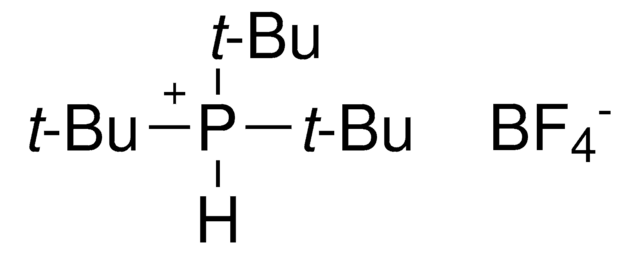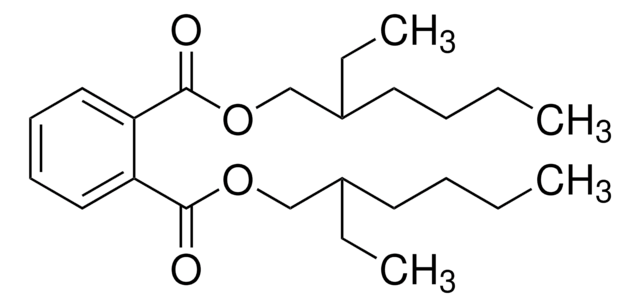20760
Butyronitrile
purum, ≥99.0% (GC)
Synonym(s):
Propyl cyanide
About This Item
Recommended Products
vapor density
2.4 (vs air)
Quality Level
vapor pressure
23 mmHg ( 25 °C)
grade
purum
Assay
≥99.0% (GC)
form
liquid
autoignition temp.
910 °F
refractive index
n20/D 1.384 (lit.)
n20/D 1.384
bp
115-117 °C (lit.)
mp
−112 °C (lit.)
solubility
DMF: miscible(lit.)
alcohol: miscible(lit.)
diethyl ether: miscible(lit.)
water: very slightly soluble(lit.)
density
0.794 g/mL at 25 °C (lit.)
functional group
nitrile
SMILES string
CCCC#N
InChI
1S/C4H7N/c1-2-3-4-5/h2-3H2,1H3
InChI key
KVNRLNFWIYMESJ-UHFFFAOYSA-N
Looking for similar products? Visit Product Comparison Guide
General description
Application
Signal Word
Danger
Hazard Statements
Precautionary Statements
Hazard Classifications
Acute Tox. 1 Inhalation - Acute Tox. 3 Dermal - Acute Tox. 3 Oral - Flam. Liq. 2
Storage Class Code
3 - Flammable liquids
WGK
WGK 1
Flash Point(F)
71.6 °F
Flash Point(C)
22 °C
Personal Protective Equipment
Choose from one of the most recent versions:
Already Own This Product?
Find documentation for the products that you have recently purchased in the Document Library.
Customers Also Viewed
Our team of scientists has experience in all areas of research including Life Science, Material Science, Chemical Synthesis, Chromatography, Analytical and many others.
Contact Technical Service












